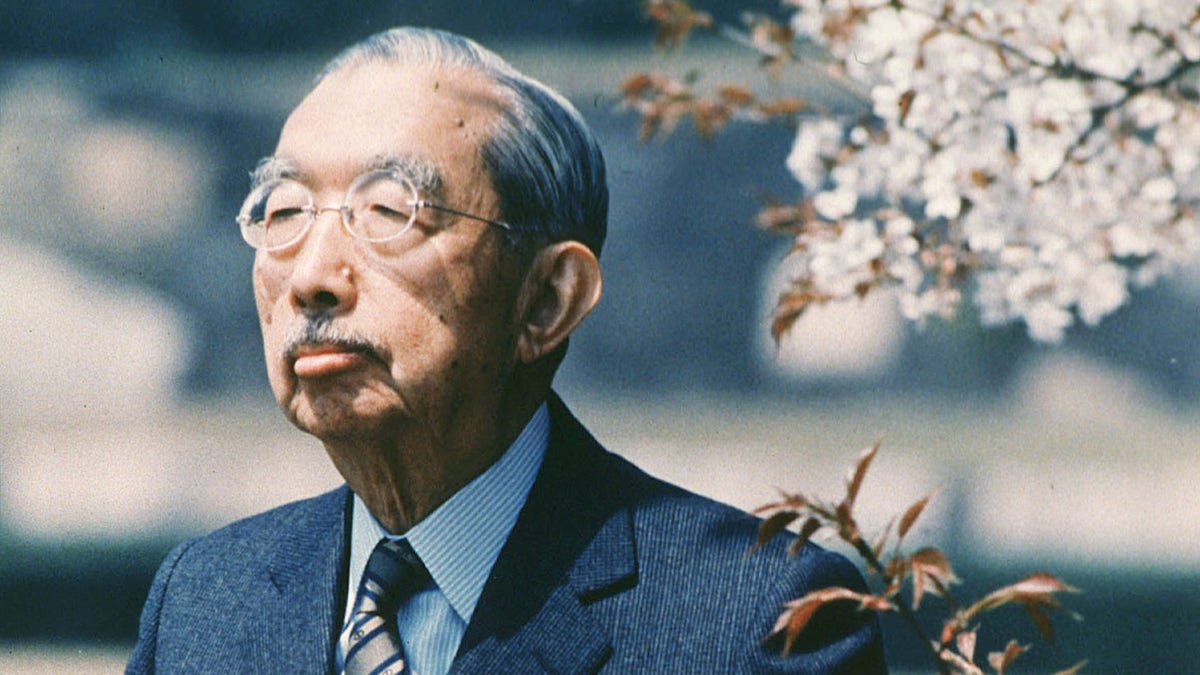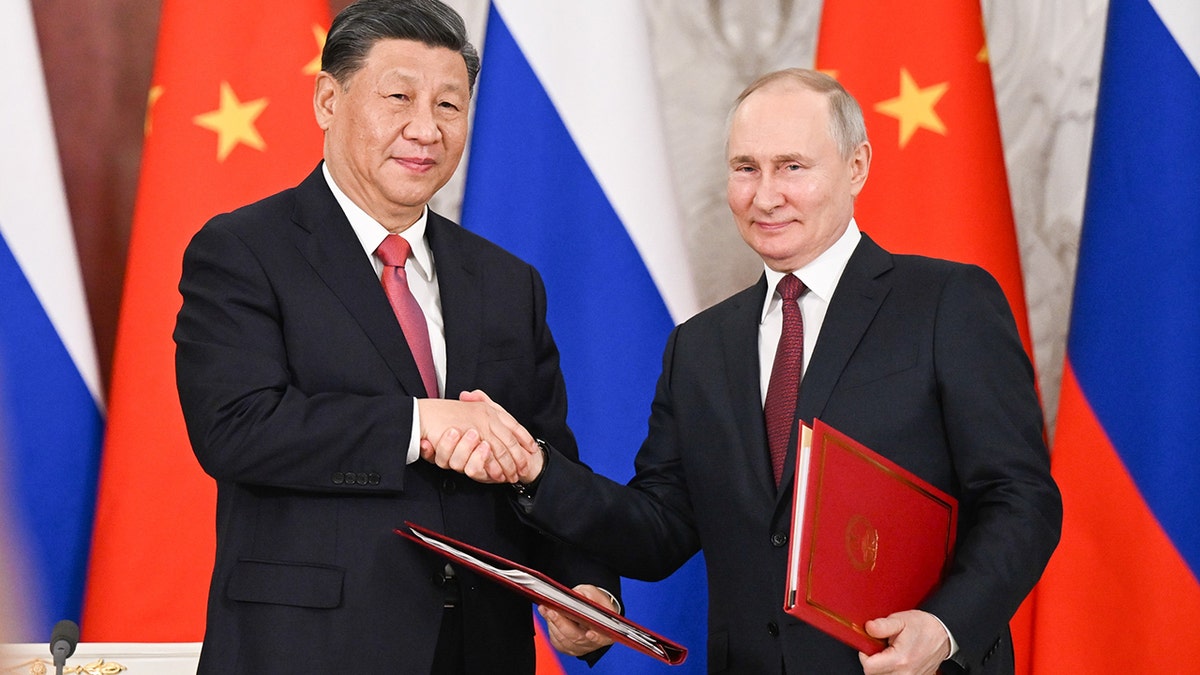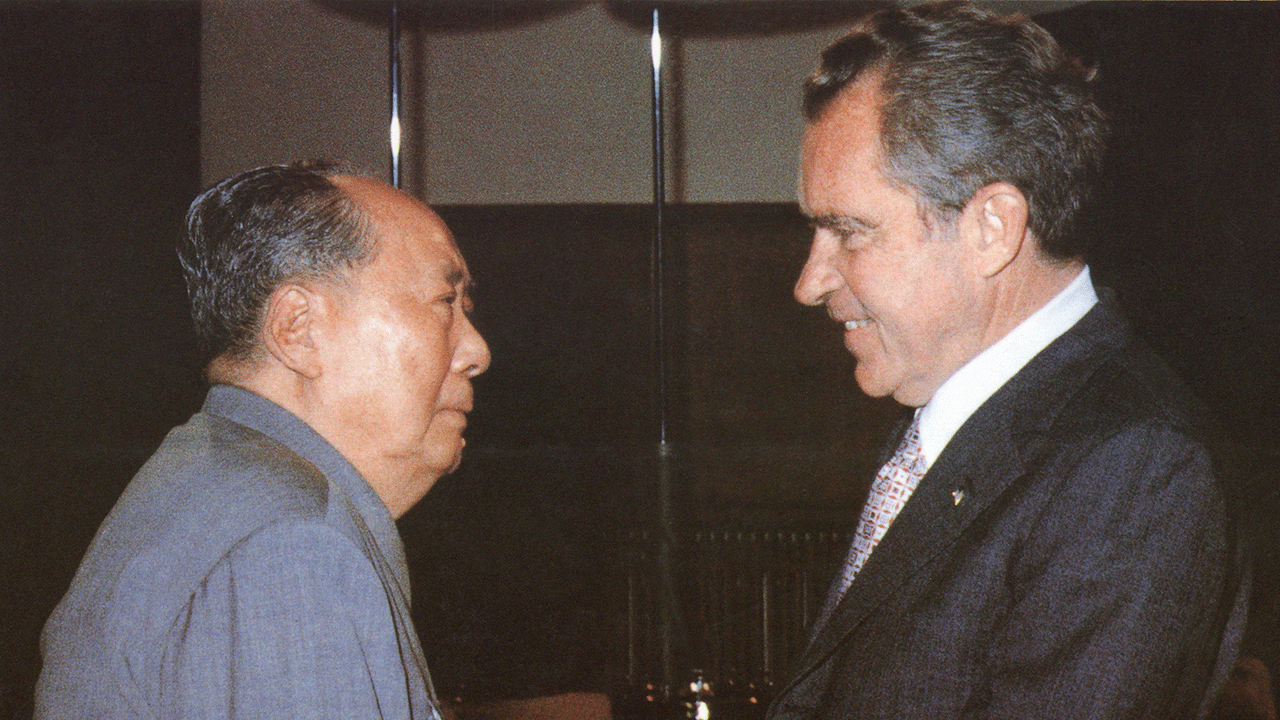Vivek Ramaswamy: As president, I would ‘ban’ most companies from doing business with China
Republican presidential candidate Vivek Ramaswamy explains his foreign policy stance on ‘America Reports.’
Driving a wedge between China and Russia may be the best way to thwart their goals, 2024 Republican presidential candidate Vivek Ramaswamy told Fox News on Monday.
Dividing the budding alliance would arguably conquer China's ability to become top global superpower and stymie Russia's invasion of Ukraine, Ramaswamy told "America Reports." In addition, the pharmaceutical entrepreneur said, he would ban U.S. companies from doing business with China until it halts its overall aggression, and stops stealing intellectual property or using its companies as "geopolitical pawns."
Ramaswamy said China and Russia first codified their alliance in 2001 and have recently become even stronger partners as Vladimir Putin continues his invasion of Ukraine and Chinese leader Xi Jinping eyes a Taiwan takeover amid the perception of a faltering U.S. global leadership role.
"I think we need to focus on driving a wedge between that Sino-Russian alliance, because I think that is the single greatest military threat that we're going to face. And it's what gives Xi Jinping the confidence that he needs to risk war with the U.S. over Taiwan on the bet that the U.S. won't want to actually go after two different nuclear superpowers at the same time," he said.
RFK JR WARNS ‘UGLY PRECEDENT’ WAS SET WITH PANDEMIC RESPONSE

Former Japanese Emperor Hirohito seen in this 1986 file photo. (Reuters/ES/DL)
"That's actually the focus of my foreign policy."
Ramaswamy further suggested forcing a split between the two U.S. rivals could prevent a much larger conflict – surmising that if the Western alliance in World War II had the prescience to drive a wedge between German Chancellor Adolf Hitler and Japanese Emperor Hirohito – the global order would have continued much differently and likely peaceably.
When questioned on why he would consider offering Putin concessions involving Ukraine, Ramaswamy disagreed it was an act of channeling former United Kingdom Prime Minister Neville Chamberlain – famous for appeasing Hitler in hopes of averting World War II.
"Well, this is the equivalent of if we could go back and actually disrupt the German-Japan alliance. Boy, would we have wanted to do that at the time if we could," he said.
"It's a reverse maneuver of what [Richard] Nixon did with Mao [Zedong]. Mao was not some … paragon of democracy. I don't trust Putin any more than Nixon trusted Mao, except this time Putin is the new Mao: Disrupt that alliance."
DESANTIS PLEDGES TO FIRE CHRIS WRAY

Xi, Putin (Xie Huanchi/Xinhua via Getty)
He said such a move would, despite giving Russia some concessions, transform the global order from bilateral to trilateral – leaving no firm alliances between the three major nuclear powers, U.S., Russia and China.
As for allowing Putin to potentially take over the Donbass region of Ukraine or some other concession, Ramaswamy said any overture would be backed up by firm agreements to halt military exercises with China and other things the Russian leade wants.
"If he reneges, then we go back on the things that we said we would agree to give him, which is what we're saying is no Ukraine admission to NATO, freeze the current lines of control. That's a Korean War-style armistice agreement," he said.
"But if Putin reneges on that now, we're talking about a maximum pressure campaign in terms of economic sanctions."
Such concessions, he said, if enacted, would be part of the larger U.S. interest to prevent Russia or China from attaining top status over America on the global stage.

Mao, Nixon (AFP via Getty Images)
He also quipped that Putin appears to dislike being viewed as Xi's "little brother" in their current relationship.
The candidate also expounded on his plan to seek a "total decoupling" of Sino-American business relationships, enacting a federal ban on such until the Chinese Communist Party commits to and follows through with reforms.
"I'm talking about actual real measures No data theft, no intellectual property theft, no more turning our own companies into your geopolitical pawns to do your bidding, using lobbying," he said. "I think it would have some short term economic consequences. But I do think that we can make those sacrifices if we know what we're sacrificing for."




















